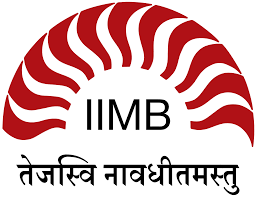
(1).
About MBA Innovation
MBA innovation in India refers to the various initiatives, approaches, and practices implemented by business schools in the country to foster innovation and entrepreneurship within their MBA programs. These innovations aim to equip students with the knowledge, skills, and mindset necessary to drive and navigate disruptive changes in the business landscape.
Here are some key aspects of MBA innovation in India:
| MBA Innovation | Description |
| Entrepreneurship and Innovation Courses | Many business schools in India have introduced specialized courses focused on entrepreneurship and innovation within their MBA curriculum. These courses cover topics such as entrepreneurial mindset, opportunity identification, business model innovation, design thinking, and technology commercialization. By offering dedicated coursework in these areas, business schools encourage students to develop an innovative and entrepreneurial mindset. |
| Experiential Learning | MBA programs in India have increasingly incorporated experiential learning methodologies to provide students with hands-on experience in real-world business challenges. This includes internships, consulting projects, and business simulations. By immersing students in practical scenarios, business schools enable them to apply their knowledge, think critically, and develop innovative solutions. |
| Start-up and Incubation Support | Business schools in India often establish start-up incubation centers and entrepreneurship cells on campus to support student-driven ventures. These facilities provide mentorship, funding assistance, networking opportunities, and infrastructure for aspiring entrepreneurs. By nurturing and supporting student start-ups, business schools actively foster innovation and entrepreneurship within their MBA ecosystem. |
| Industry Collaborations | Business schools in India form collaborations and partnerships with industries, start-ups, and corporate organizations to promote innovation. These collaborations may involve joint research projects, internships, guest lectures by industry leaders, or industry-driven curriculum design. Such collaborations enable students to gain exposure to real-world business challenges, emerging trends, and innovation opportunities. |
| Hackathons and Innovation Challenges | Many business schools in India organize hackathons, innovation challenges, and business plan competitions to foster a culture of innovation and creativity among their MBA students. These events provide platforms for students to showcase their problem-solving abilities, collaborate in teams, and pitch disruptive ideas to a panel of judges. Such initiatives encourage students to think innovatively and apply their business knowledge in practical contexts. |
| International Experiences | MBA programs in India increasingly offer opportunities for international experiences such as student exchanges, study tours, or global immersion programs. These experiences expose students to diverse cultures, business environments, and innovation ecosystems, broadening their perspectives and inspiring them to think globally. International exposure enhances their understanding of global business trends and innovation practices. |
| Collaborative Learning and Networking | Business schools in India emphasize collaborative learning environments that facilitate peer-to-peer interactions, networking, and idea exchange. Group projects, team-based assignments, and interactive classroom discussions encourage students to work together, learn from each other's diverse experiences, and foster a spirit of innovation and collaboration. |
| Digital and Technological Integration | With the rapid advancement of technology, MBA programs in India are incorporating digital and technological elements into their curriculum. This includes courses on emerging technologies such as artificial intelligence, data analytics, blockchain, and digital transformation. By integrating technology into the learning process, business schools prepare students to leverage digital innovation and stay ahead in the digital era. |
(2).
Why MBA innovation is important?
MBA
innovation is important in India for several reasons:
(1).
Promoting Entrepreneurship
India
has a vibrant entrepreneurial ecosystem with a growing number of start-ups and
aspiring entrepreneurs. MBA innovation plays a crucial role in nurturing and
supporting these entrepreneurs by providing them with the necessary knowledge, skills, and resources. By
encouraging innovation and entrepreneurship, MBA programs contribute to the
country's economic growth and job creation.
(2).
Driving Economic Development
Innovation
is a key driver of economic development. By fostering a culture of innovation
within MBA programs, business schools in India contribute to the overall
economic growth of the country. Innovative ideas and disruptive business models
have the potential to create new
industries, improve productivity, and enhance
competitiveness, leading to job creation and increased prosperity.
(3).
Meeting Industry Demands
The
business landscape in India is rapidly evolving, driven by technological advancements, changing consumer
preferences, and global market trends. MBA innovation ensures that
graduates are equipped with the skills and knowledge required to meet the
evolving demands of industries. It prepares students to navigate complex
business environments, adapt to emerging trends, and drive innovation within
organizations.
(4).
Enhancing Global Competitiveness
India
is increasingly competing on a global scale. To succeed in the global
marketplace, Indian businesses need to foster a culture of innovation and
disruption. MBA innovation provides students with the mindset and skills to
identify and seize opportunities, develop innovative solutions, and effectively
compete in the global arena. It equips them with the ability to think
critically, embrace change, and lead with innovation.
(5).
Encouraging Research and Development
MBA
Innovation in India promotes research and development activities within
business schools. It encourages students and faculty members to engage in
cutting-edge research, explore new ideas, and contribute to the body of
knowledge in various domains. This research focus helps in addressing business challenges, developing innovative practices,
and driving industry advancements.
(6).
Bridging the Industry-Academia Gap
MBA
innovation initiatives foster closer ties between business schools and
industries. By collaborating with businesses, inviting industry leaders as
guest speakers, and offering industry-driven projects, business schools bridge
the gap between academia and industry. This collaboration ensures that MBA
graduates possess the skills and knowledge that are in demand in the job
market, making them more employable and industry-ready.
(7).
Cultivating Leadership and Change Agents
MBA innovation emphasizes the development of leadership skills, critical thinking abilities, and the capacity to drive change. In a dynamic and disruptive business environment, organizations need leaders who can adapt, innovate, and lead transformational change. MBA programs that prioritize innovation empower students to become change agents, capable of challenging the status quo, identifying opportunities, and driving positive change within organizations.
(3). Top MBA innovation
Here are some top MBA innovations in India that have gained recognition and made a significant impact in fostering innovation and entrepreneurship:
These
are just a few examples of the top MBA innovations in India. There are several
other business schools, incubators, and initiatives that contribute to
fostering innovation and entrepreneurship within the MBA ecosystem in the country.
(4).
The MBA Mindset: How Business Schools Foster Innovation and Disruption?
Business
schools in India play a crucial role in fostering innovation and disruption by
cultivating a specific mindset among their students. The Master
of Business Administration (MBA)
programs offered by these schools are designed to develop individuals who can
think critically, take risks, and drive positive change within organizations.
Here are some key ways in which business schools in India promote innovation
and disruption:
(1).
Entrepreneurship Programs
Many
business schools in India have established dedicated entrepreneurship programs
to encourage students to start their own ventures. These programs provide
mentorship, access to funding networks, and practical training in areas such as
business planning, marketing, and finance. By nurturing an entrepreneurial
spirit, business schools empower students to disrupt existing industries or
create new ones.
(2).
Case Study Methodology
Indian
business schools often employ the case study method, where students analyze
real-world business scenarios and devise strategies to address complex
problems. This approach promotes critical
thinking, creativity, and innovative problem-solving skills. By grappling
with real-life challenges faced by organizations, students are encouraged to
think outside the box and develop disruptive solutions.
(3).
Industry Collaborations
Many
business schools in India establish partnerships with industries, startups, and
entrepreneurial ecosystems. These collaborations facilitate knowledge exchange, internships, and
industry-driven projects. By engaging with real businesses, students gain insights
into emerging trends, market disruptions, and innovation opportunities. Such
interactions bridge the gap between academia and industry, fostering an
entrepreneurial mindset.
(4).
Incubation Centers and Accelerators
Business
schools in India often establish incubation centers and accelerators on campus.
These facilities provide support to students and alumni who want to launch
their own startups. They offer resources such as mentorship, networking opportunities, access to funding, and shared
office spaces. By nurturing early-stage ventures, these centers create an
environment conducive to innovation and disruption.
(5).
Guest Lectures and Workshops
Business
schools invite industry leaders, entrepreneurs, and experts to deliver guest
lectures and conduct workshops. These sessions expose students to diverse perspectives, emerging trends, and
disruptive business models. By learning from successful innovators,
students develop a mindset that embraces change, challenges the status quo, and
seeks innovative solutions.
(6).
Global Exposures
Many
business schools in India offer international exchange programs and study
tours. These opportunities enable students to experience different cultures, business environments, and
innovation ecosystems. By exposing students to global perspectives,
business schools broaden their horizons and inspire them to think globally.
This exposure nurtures a mindset that is open to new ideas and willing to
disrupt conventional practices.
(7).
Interdisciplinary Approach
Business
schools in India are increasingly adopting an interdisciplinary approach,
integrating courses from diverse disciplines such as technology, design, and social sciences. By blending business
education with other domains, students are encouraged to think holistically and
explore new frontiers. This interdisciplinary approach fosters innovation by
enabling students to connect ideas across different fields and challenge
traditional boundaries.
Conclusion
Note
In
conclusion, business schools in India foster innovation and disruption by
cultivating an entrepreneurial mindset, emphasizing practical learning through
case studies and industry collaborations, providing support through incubation
centers and accelerators, facilitating interactions with industry leaders, offering global exposure, and adopting an
interdisciplinary approach. By instilling these values and skills in their
students, these schools contribute to the development of a vibrant
entrepreneurial ecosystem and drive positive change in the business landscape
of India.
Also Read:
The
Role of Diversity and Inclusion in MBA Programs and the Workplace
Register Now To Apply
Get details and latest updates
Related News
View AllRelated Articles
View AllTrending Articles
View All-
Is JEE Main 2025 Syllabus Reduced? Check Latest Updates
Jan, 07, 2025 Read More -
UK Board Date Sheet 2025 Out: Check Uttarakhand Class 10 & 12 Exam Dates
Jan, 06, 2025 Read More -
What Is a Good Score in the AIBE 19 Exam 2024?
Dec, 31, 2024 Read More -
CBSE Date Sheet 2025 Class 10th & 12th Released: Download Now
Dec, 30, 2024 Read More -
TBSE 12th Exam Time Table 2025 Out: Get Full Details Here
Dec, 24, 2024 Read More -
TBSE 10th Exam Time Table 2025 Out: Get Full Details Here
Dec, 24, 2024 Read More -
GATE 2025 Exam Dates Out by IIT Roorkee: Subject-Wise Schedule Available
Dec, 23, 2024 Read More -
UPMSP 2025 Exam Schedule OUT: Download Class 10 & 12 Time Table
Dec, 13, 2024 Read More -
UK Board Date Sheet 2025 Out: Check Uttarakhand Class 10, 12 Exam Dates
Dec, 12, 2024 Read More -
Top 10 Indian Colleges in QS World University Sustainability Rankings 2025
Dec, 12, 2024 Read More
Trending News
View All-
UGC NET 2024 Admit Card Expected Soon for January 10 & 15 Exams
Jan, 08, 2025 Read More -
NIFT 2025 रजिस्ट्रेशन 9 जनवरी तक, विलंब शुल्क के साथ आवेदन प्रक्रिया शुरू
Jan, 08, 2025 Read More -
MAHA TET Result 2024 Expected Soon: Download Here
Jan, 08, 2025 Read More -
SEED 2025 Admit Card Released for B.Des: Download Now
Jan, 08, 2025 Read More -
MAH BBA CET 2025 Exam Date Revised: Check Important Dates
Jan, 08, 2025 Read More -
UK NEET PG 2024 Resignation Ends Today: Counselling Dates Soon
Jan, 08, 2025 Read More -
INI CET 2025 Round 2 Result Out: Download Seat Allocation PDF
Jan, 08, 2025 Read More -
CENTAC NEET PG 2024 Application Window Reopened- Apply Now
Jan, 08, 2025 Read More -
Is the IBSAT 2024 Exam Being Re-Conducted? Check Full Details Here
Jan, 07, 2025 Read More -
COMEDK Registration 2025 Soon: Check Details Here
Jan, 07, 2025 Read More
Related Universities
View All-
Entrepreneurship Development Institute of India
-
IIM Ahmedabad - Indian Institute of Management
-
IIM Calcutta - Indian Institute of Management
-
IIM Bangalore - Indian Institute of Management
-
IIM Indore - Indian Institute of Management






 back
back